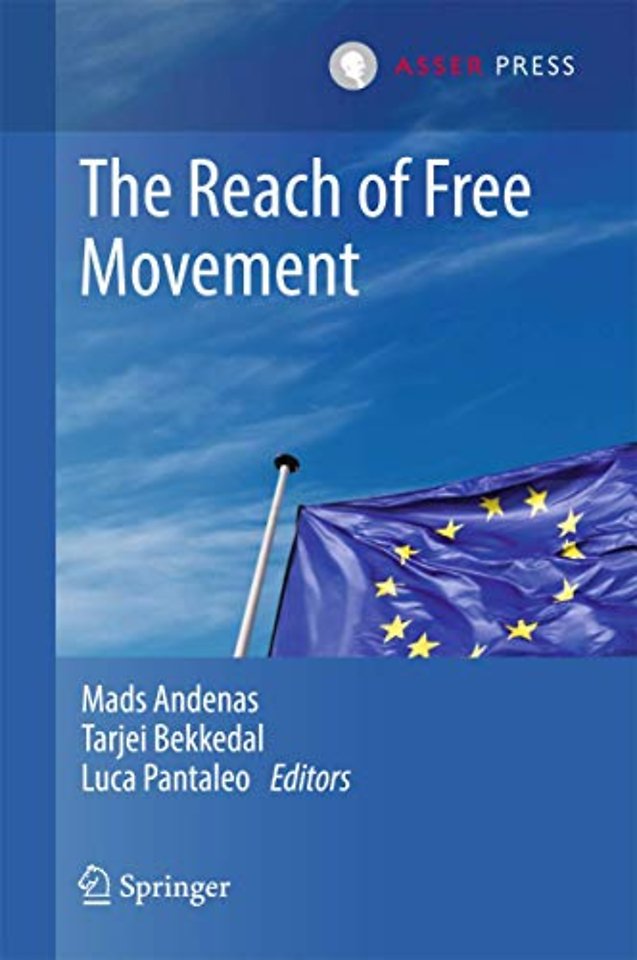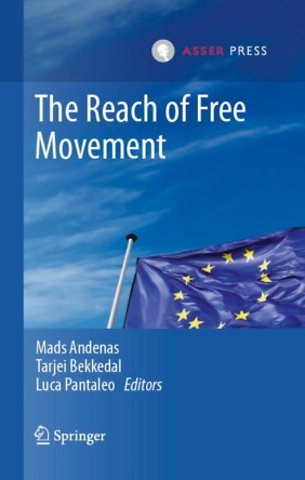The Reach of Free Movement
Samenvatting
The reach of free movement within the EU Internal Market and what constitutes a restriction are the topics of this book. For many years the tension between free movement and restrictions have been the subject of intense discussion and controversy, and this includes the constitutional reach of the rights conferred by the Treaty of Lisbon. Anything that makes movement less attractive or more burdensome may constitute a restriction. Restrictions may be justified, but only if proportionate. The reach of free movement is fundamental to the Internal Market, both for the economic constitution and increasingly for individual rights in a European legal order that provides constitutional guarantees for rights, exceeding those of free movement. The interaction between fundamental rights and fundamental freedoms to movement distinguishes the EU legal order from the national legal systems.
The book falls into four parts, ‘The reach of free movement’, ‘Justifications and Proportionality’, ‘Fundamental rights’, and ‘Looking Abroad’. The clear discussion of the fundamentals and dilemmas regarding the subject of this book should prove useful for academics, practitioners, graduate students as well as EU officials and judges wishing to stay updated on the ongoing scholarly debate regarding relevance to case law.
Specificaties
Inhoudsopgave
of the CJEU: An Introduction .............................. 1
Mads Andenas
Part I The Reach of Free Movement
2 The Reach of Free Movement. A Defence of Court Discretion .... 17
Tarjei Bekkedal
3 Free Movement of Persons Through the Lenses
of ‘Discrimination’ and ‘Restriction’ ......................... 57
Alina Tryfonidou
4 Restrictions on the Use of Goods and Services ................. 85
Stefan Enchelmaier
5 To Use or Not to Use—That’s the Question. On Article 34
and National Rules Restricting the Use of Lawfully Marketed
Products................................................ 109
Niels Fenger
Part II Justifications and Proportionality
6 Justifications for Restrictions to Free Movement: Towards a
Single Normative Framework? .............................. 131
Vassilis Hatzopoulos
7 The Justification and Proportionality of Certain Administrative,
Regulatory and Political Concerns........................... 157
Pål Wennerås
v
8 The Guardianship of European Constitutionality: A Structural
Critique of European Constitutional Review................... 173
Agustín José Menéndez
9 The Criterion of “Consistent and Systematic Manner”
in Free Movement Law.................................... 205
Tor-Inge Harbo
Part III Fundamental Rights
10 Legitimacy and the Charter of Fundamental Rights
Post-Lisbon ............................................. 229
Christoffer C. Eriksen and Jørgen A. Stubberud
11 False Friends and True Cognates: On Fundamental Freedoms,
Fundamental Rights and Union Citizenship ................... 253
Francesco De Cecco
12 Fundamental Freedoms, Fundamental Rights, and the Many
Faces of Freedom of Contract in the EU...................... 273
Olha O. Cherednychenko
13 The Charter of Fundamental Rights and the Reach of Free
Movement Law .......................................... 293
Filippo Fontanelli and Amedeo Arena
Part IV Looking Abroad
14 Creating a National Market in the United States Through the
Dormant Commerce Clause? ............................... 315
Eszter Belteki
15 Beyond Parallel Powers. EU Treaty-Making Power
Post-Lisbon ............................................. 367
Mads Andenas and Luca Pantaleo
Table of Cases............................................... 399
Anderen die dit boek kochten, kochten ook
Rubrieken
- cadeauboeken
- computer en informatica
- economie
- filosofie
- flora en fauna
- geneeskunde
- geschiedenis
- gezondheid
- jeugd
- juridisch
- koken en eten
- kunst en cultuur
- literatuur en romans
- mens en maatschappij
- naslagwerken
- non-fictie informatief/professioneel
- paramedisch
- psychologie
- reizen
- religie
- schoolboeken
- spiritualiteit
- sport, hobby, lifestyle
- thrillers en spanning
- wetenschap en techniek
- woordenboeken en taal







